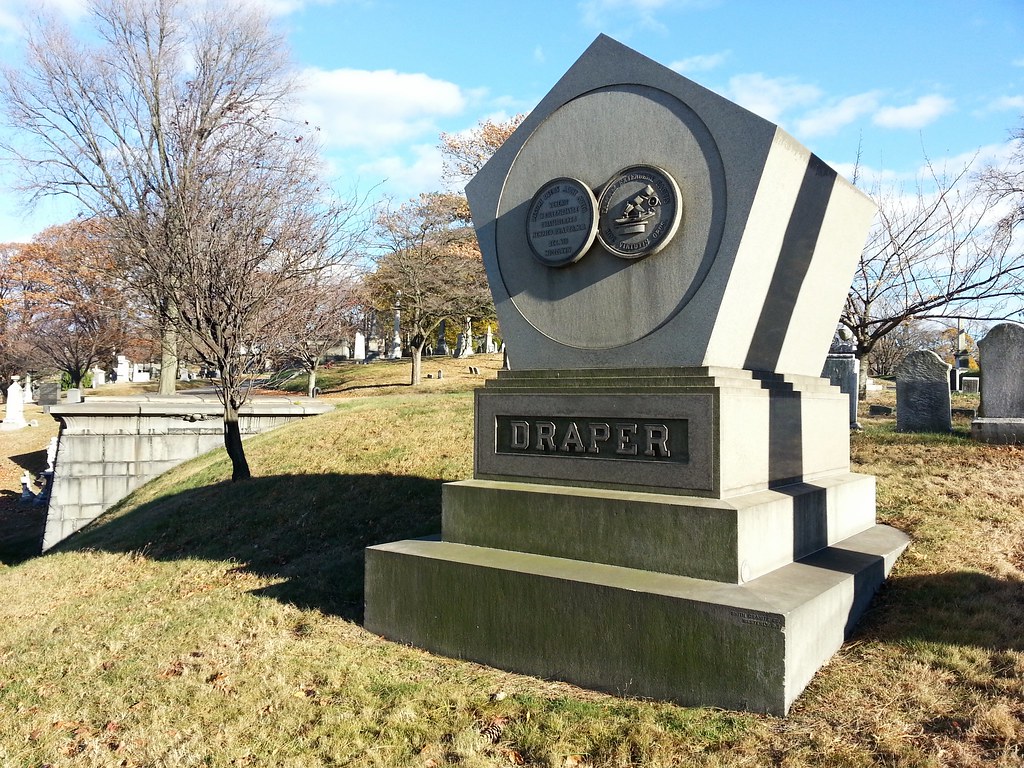
Henry Draper, son of the distinguished John William Draper, was a doctor and a pioneer of astrophotography. The circular objects adorning his monument depict the two sides of the gold medal produced in his honor by the Philadelphia Mint at the order of Congress to memorialize his role in photographing the 1874 transit of Venus.
The Draper name is largely forgotten today, but, if Henry's obituary in the Brooklyn Daily Eagle is any indication, the Drapers were highly revered in the scientific community at the time of his death in 1882 at the age of 45 (following his father's death earlier in the year). I've included some excerpts from the obituary below; the final paragraph also offers perspective on an American inferiority complex that may have existed at the time.
The cause of scientific study not only in the country but throughout the world has suffered severely during the year that is now drawing to a close. The death roll of the past twelve months has included many illustrious names, that of Mr. Darwin heading the list, to be quickly followed by that of Professor [John William] Draper the elder. Now within a few months Henry Draper the younger has died suddenly after carving out for himself at a comparatively early age a record well worthy of the illustrious name he bore. The decease of these two eminent men is a sad blow to the cause of science and to the millions of people who benefit by the tireless energy, the dazzling versatility and intelligent persistence of the thinking few. . . .
It does not often happen that genius is bequeathed from father to son, but in the case of the Drapers the intellectual vigor of the parent was reproduced in the son, who at a very early age launched out into scientific study and achieved results undreamed of by older and less exuberant minds with the same versatility and originality which marked the elder . . .
Indeed through the Drapers and a few others we have been enabled to wipe out the reproach put upon us [as a nation] by a friendly critic some thirty years ago, that we had not shown the least capacity for art or science. It is true that we have not yet produced any large triumphs of art, but we have at least developed an art spirit which must before long express itself. In some departments of science, the speculative for instance, we are yet behind England, France and Germany, but in the applications of science we are almost equally ahead. . . . though we cannot but realize that a prophet and the son of a prophet has been removed from the arena of this world's activities we may rest assured that the impulse given to the study of knowledge for its own sake by father and son will not cease, but rather tend to increase.


